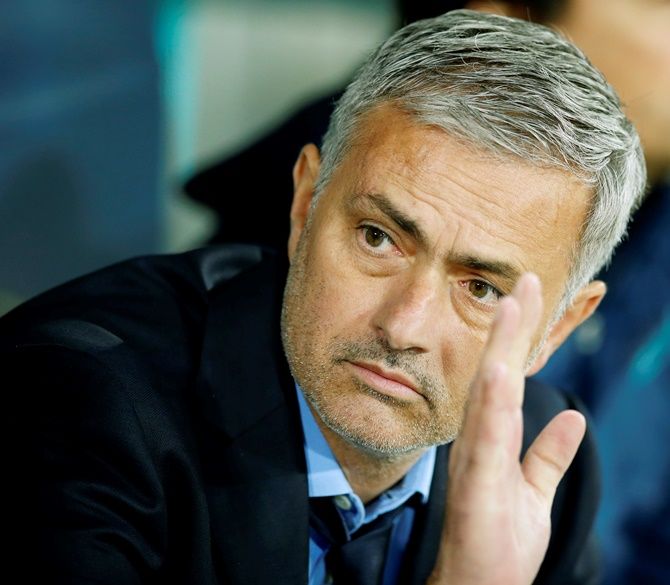Mourinho returns for more drama in the global village

For all soccer's status as a global game, the pool of its top managers is relatively small and the world's leading clubs often have the feel of a tiny, gossiping village with a managerial merry-go-round on the central green.
Manchester United are replacing Louis van Gaal with his former assistant Jose Mourinho, a man Chelsea no longer wanted who has frequently clashed with new Manchester City manager Pep Guardiola.
Manchester's new double act will also have on their radar Arsenal manager Arsene Wenger -- who struggles to hide his disdain for Mourinho -- champions Leicester's Claudio Ranieri and Liverpool's Juergen Klopp, who was Guardiola's main adversary in Germany.
Add in new Chelsea manager Antonio Conte, who has been called "the Italian Jose Mourinho", and the soap opera possibilities in soccer's village become endless.
What all the central characters share, apart from a clear belief in their own ability, is an elite status which provides a passport to the game's top jobs.
Only Frenchman Wenger has chosen to stay put, overseeing Arsenal for almost 20 years and 1,120 games. The rest are often on the move.
England's League Managers' Association has revealed that the average tenure of a Premier League manager is now little more than two seasons, with 11 of last year's 20 starters already kicked out.
Each new manager knows the clock is ticking on his Premier League career, an understanding that contributes to the bear-pit atmosphere that surrounds many games. Old rivalries are intensified and only the strongest survive.
"The same small group of managers are employed because they are the strongest brands in the market," said Michael Calvin, award-winning author of Living on a Volcano, a book about modern-day English football managers.
"In previous generations it was all player-driven but modern-day players are pretty vanilla and so managers have the perceived personality," he added.
"The modern-day manager is actually a middle manager in a global corporation, subject to similar restraints in similar industries. The owners are driven by the share price and a pathological desire to avoid brand damage."
To do that, Guardiola and Mourinho will have to hit the ground running and start winning immediately. German Klopp believes Spaniard Guardiola will know what to expect after his spells at Barcelona and Bayern Munich.
“He will enjoy the league because it is a great league and a real competition and he is a real competitor. That is what he wants," Klopp said.
Former Barcelona boss Guardiola certainly brings the pedigree with two Champions League titles among his 12 trophies as a manager. What will be fascinating is to see how former Real Madrid manager Mourinho reacts to his old foe.
In Spain, their old friendship did not survive an often bruising rivalry which Guardiola says he did not have good memories of.
Relations between the Manchester clubs are not as hostile and Mourinho may chose to play things down, rather than stoke them up as he clearly did in Spain.
After all, there are plenty of other big rivals just across the village.











